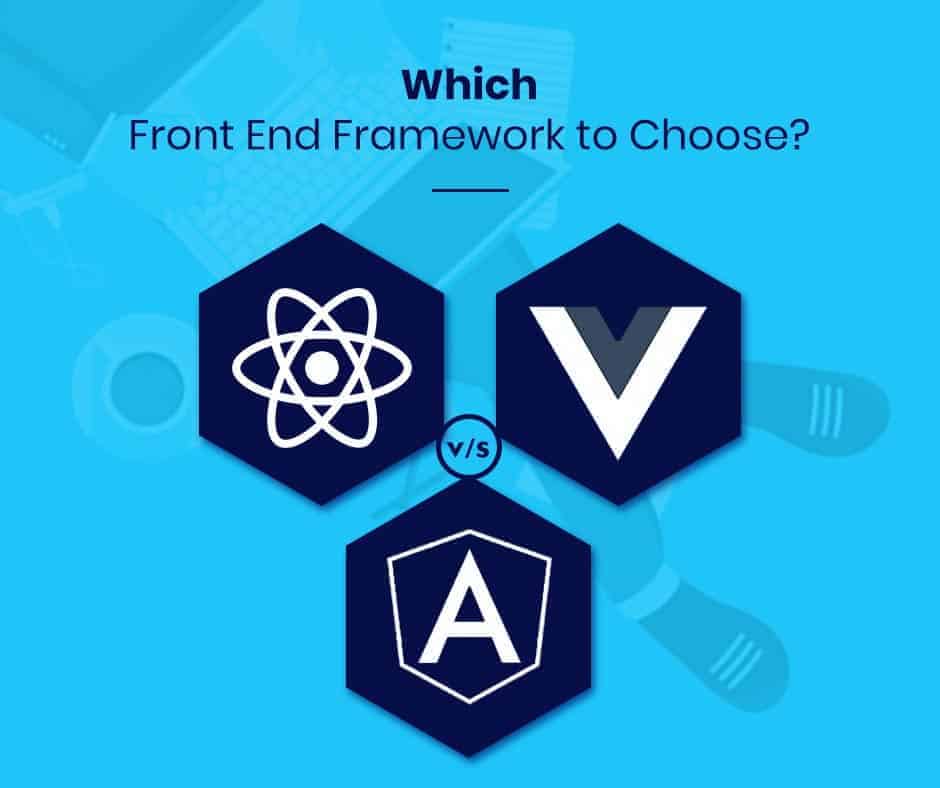Introduction
Hey there, Learner! Welcome to the world of front-end frameworks. When it comes to building interactive and user-friendly web applications, choosing the right framework can make all the difference. Three of the most popular choices in the market today are React, Angular, and Vue. Each framework offers its own unique advantages and drawbacks, so it’s essential to understand their key differences to make an informed decision for your next project.
In this comprehensive guide, we’ll dive deep into React, Angular, and Vue, exploring their features, strengths, and weaknesses. By the end, you’ll be able to confidently choose the framework that best aligns with your project requirements and technical skills.
Section 1: Understanding the Basics of React, Angular, and Vue
What is React?
React is a front-end library developed by Facebook. It follows a component-based architecture, where complex user interfaces are broken down into smaller, reusable components. React’s virtual DOM (Document Object Model) efficiently updates the real DOM, making it ideal for building highly dynamic and responsive applications.
What is Angular?
Angular is a comprehensive front-end framework created by Google. It adopts the Model-View-Controller (MVC) architectural pattern, providing a structured approach to application development. Angular’s built-in dependency injection and routing capabilities make it a powerful choice for large-scale, enterprise-level projects.
What is Vue?
Vue is a progressive front-end framework that combines the strengths of React and Angular. It offers a lightweight and easy-to-learn API, making it a great option for beginners. Vue’s reactivity system allows for efficient updates to the DOM, while its extensive ecosystem provides plenty of plugins and libraries for advanced functionality.

Source www.remoteplatz.com
Section 2: Comparing the Features and Benefits of React, Angular, and Vue
Performance
React’s virtual DOM and unidirectional data flow optimize performance by minimizing unnecessary DOM updates. Angular’s ahead-of-time (AOT) compilation improves bundle sizes and speeds up load times. Vue balances performance with flexibility, making it suitable for both small and large-scale applications.
Learning Curve
React’s component-based approach and simple API make it beginner-friendly. Angular’s structured architecture requires a deeper understanding of the MVC pattern. Vue strikes a balance between ease of learning and advanced features, appealing to both beginners and experienced developers.
Popularity and Community Support
All three frameworks enjoy widespread popularity, with React and Angular being the most established. React’s large community provides ample documentation, support forums, and online courses. Angular has a strong enterprise presence, while Vue’s rapidly growing community offers plenty of resources and learning materials.
Section 3: Choosing the Right Framework for Your Project
When to Choose React:
- You need a highly dynamic and responsive application with a complex UI.
- You prefer a component-based architecture with a flexible and customizable API.
- You’re looking for a framework with a vibrant community and extensive support resources.
When to Choose Angular:
- You require a structured and scalable architecture for large-scale applications.
- You value dependency injection and built-in routing capabilities.
- You’re targeting enterprise-level projects with high security and reliability requirements.
When to Choose Vue:
- You want a lightweight and easy-to-learn framework with a minimal learning curve.
- You need a balance between performance and flexibility for applications of varying complexity.
- You’re interested in a framework with an active and growing community.
Comparative Table
| Feature | React | Angular | Vue |
|---|---|---|---|
| Architecture | Component-based | MVC | Progressive |
| Performance | Virtual DOM | Ahead-of-time compilation | Reactive system |
| Learning Curve | Beginner-friendly | Moderate | Easy-to-learn |
| Popularity | High | Medium | High |
| Community Support | Extensive | Strong | Growing |
| Best for | Dynamic UIs | Large-scale projects | Flexible applications |
Conclusion
Choosing the right front-end framework for your project involves carefully considering your technical requirements, project scale, and development team’s skills. React, Angular, and Vue each excel in different areas, providing a wide range of options for building high-quality web applications.
Once you’ve made your decision, take advantage of the resources available to learn and master your chosen framework. Check out our other articles for in-depth tutorials, project guides, and industry best practices. Happy coding, Learner!
FAQ about React, Angular, or Vue: Choosing the Right Front-End Framework for Your Project
1. What are the key differences between React, Angular, and Vue?
- React: Component-based, declarative rendering, virtual DOM
- Angular: Comprehensive framework with built-in features, two-way data binding, dependency injection
- Vue: Progressive framework, template-based rendering, simple API
2. Which framework is best for beginners?
- Vue: Easiest learning curve, simple syntax, beginner-friendly documentation
3. Which framework is best for large-scale projects?
- Angular: Mature framework with comprehensive tooling, enterprise support, best for complex projects
4. Which framework is best for performance?
- React: Virtual DOM provides excellent performance, especially for complex UIs
5. Which framework has the best community support?
- React: Large and active community, extensive documentation, numerous resources
6. Which framework is most suitable for mobile development?
- React Native: Cross-platform mobile framework based on React, offers native-like performance
7. Which framework is most suitable for SEO?
- Angular: Server-side rendering and deep linking support, better for search engines
8. Which framework offers the most flexibility?
- Vue: Lightweight and modular, allows for a high degree of customization
9. Which framework is best for building Progressive Web Apps (PWAs)?
- Angular: Service workers support, offline capabilities, best for creating PWAs
10. Which framework is the most popular?
- React: Dominates the market share, widely adopted by developers and companies
Video Suggestions About : React, Angular, or Vue: Choosing the Right Front-End Framework for Your Project
